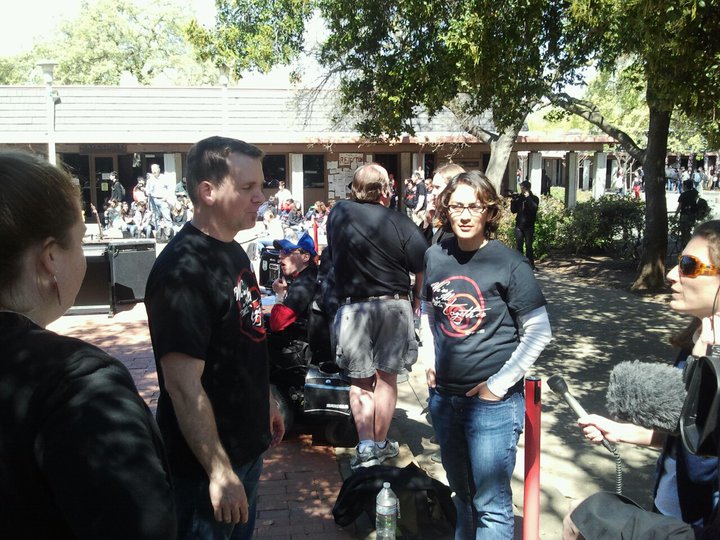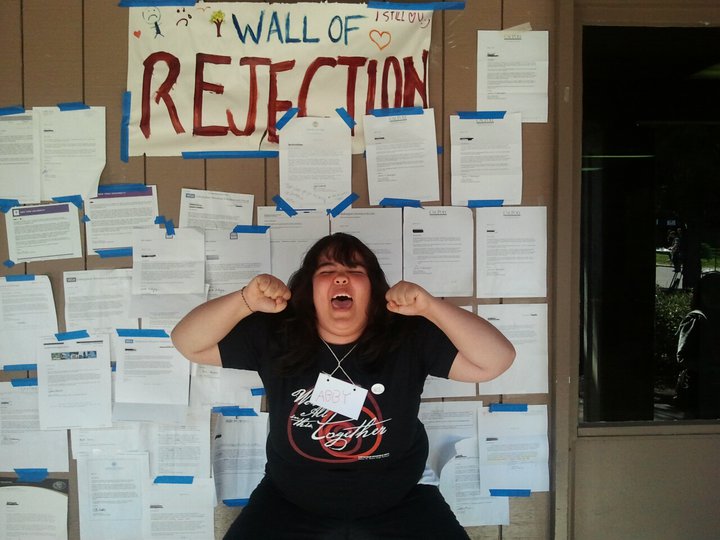Daisy Renazco, Gunn High School Mathematics Teacher/GSA Advisor

I love Not In Our Schools (NIOS) week for so many reasons! :-) The main reason being that this week provides students and teachers an opportunity to talk about topics that can be emotional, as well as sometimes uncomfortable. As a result, these conversations end up bringing our school community closer to one another. We are willing to share with each other a little bit more, our conversations are a little more thoughtful, and the goal of teaching the “whole child” is really being done during this week.
For one of my AP Statistics classes this week, I chose to not talk about content and had a discussion with my students about the “It Gets Better” campaign. The “It Gets Better” campaign was started by Dan Savage as a response to the several Lesbian, Gay, Bisexual, Transgender, and Queer/Questioning (LGBTQ) youth that had committed suicide in the month of September of 2010.
We watched a very powerful and emotional message from Texas councilman Joel Burns, and discussed how the message “It Gets Better” could be applied to many difficult issues that young people confront on a daily basis. With the string of tragedies that our own community faced, the students were able to connect to the video on several levels. Some students even shared with me that they had contemplated suicide themselves, and that they are stronger now for not going through with it. One student shared this great quote: “Suicide is a permanent solution to a temporary problem.” I think this quote was taken to heart by all my students.
In the discussion after the video, so many students were amazed by the courage Joel Burns showed by sharing such a personal story with the entire world. The students also brought up the idea that students on our campus are very accepting of one another in theory, but sometimes their actions may not support this accepting environment. A few students mentioned that they still hear gay-themed jokes on campus, and that many students may not be very accepting of students that are not academically successful. One student shared, “Yeah…I think we are very accepting, but we are not as accepting of behavior that can seem intolerant.” I do not think this is a bad problem to have as a school.

When the bell was about to ring, I was wishing we had about 10 more minutes to talk about a few topics students brought up during the last few minutes of class. I closed the class with a reflection prompt asking students what they will be taking away from our conversation today. As the students wrote, I was feeling like I did my students a disservice by not being able to discuss the last few topics that they brought up. As the bell rang, and students packed up their things and handed me their reflection on their way out, I began reading some of the responses before my next classes. All (yes…all) of the responses were positive, and the students felt that the discussion and video today were very powerful, and had given them hope for a better future.
Even though I do not often give up a full period to have a discussion that is not statistics related, I know that the conversations that I do have with my students during NIOS week and other opportunities is really making a difference. I think this lesson has reminded me that teaching the whole child is one of the many perks of my job! :-)
Visit Gunn's NIOS Page here.